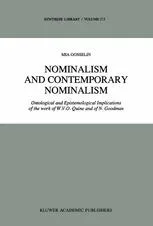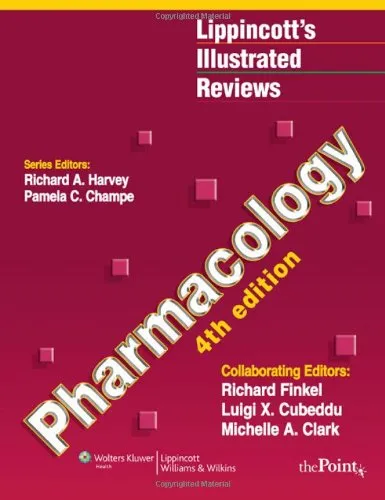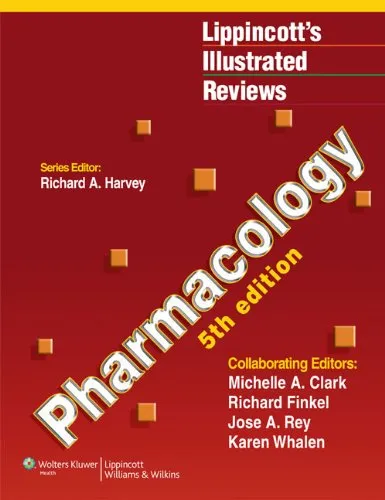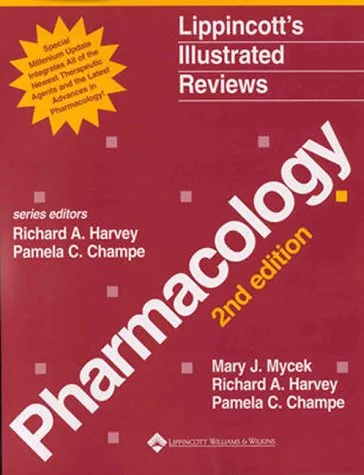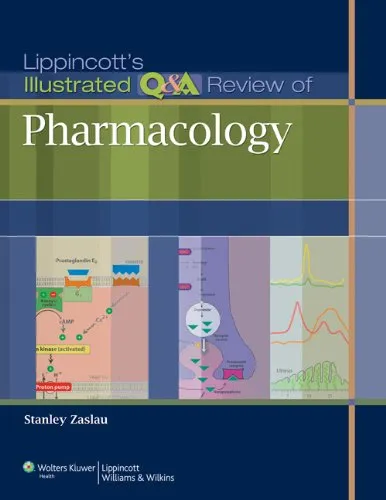Nominalism and Contemporary Nominalism: Ontological and Epistemological Implications of the work of W.V.O. Quine and of N. Goodman
4.0
بر اساس نظر کاربران

شما میتونید سوالاتتون در باره کتاب رو از هوش مصنوعیش بعد از ورود بپرسید
هر دانلود یا پرسش از هوش مصنوعی 2 امتیاز لازم دارد، برای بدست آوردن امتیاز رایگان، به صفحه ی راهنمای امتیازات سر بزنید و یک سری کار ارزشمند انجام بدینکتاب های مرتبط:
معرفی کتاب: نومینالیسم و نومینالیسم معاصر
کتاب "نومینالیسم و نومینالیسم معاصر: پیامدهای وجودی و معرفتشناختی آثار W.V.O. Quine و N. Goodman" به بررسی تأثیرات فکری دو فیلسوف بزرگ قرن بیستم میپردازد. این اثر، نقش بنیادی نومینالیسم در حوزههای متعدد فلسفی و تأثیرات آن بر مباحثات معاصر را بررسی میکند.
خلاصه جامع از کتاب
این کتاب به تحلیل عمیق مفهوم نومینالیسم میپردازد که از اهمیت ویژهای در فلسفه زبان، معرفتشناسی و متافیزیک برخوردار است. نویسنده، Mia Gosselin، با تمرکز بر آثار دو فیلسوف برجسته، یعنی W.V.O. Quine و N. Goodman، چالشهای نظریههای نومینالیستی را بهطور جامع بررسی میکند. کتاب ابتدا به نظریه Quine در مورد "naturalized epistemology" و نقش آن در تبیین زبان و اشیاء میپردازد. سپس، به تحلیل نظریههای Goodman به خصوص در زمینه "constructionalism" پرداخته و بررسی میکند که چگونه این نظریهات، مباحث قدیمی فیلسوفان در مورد واقعیت و وجود را تحت تأثیر قرار دادهاند.
نکات کلیدی
- تحلیل مفهوم اساسی نومینالیسم و تأثیر آن در فلسفه معاصر.
- نقش Quine و Goodman در تغییر و تحول مفاهیم مربوط به حقیقت و زبان.
- بررسی دقیق رابطه بین ذهن و جهان در چارچوب نظریههای نومینالیستی.
- اثرگذاری آثار این دو فیلسوف بر تئوریهای ساختارشناختی و معرفتشناختی.
نقلقولهای معروف از کتاب
"نومینالیسم نمایانگر نوعی مبارزه بیپایان با مفاهیم انتزاعی است که همواره در تلاش است تا واقعیت را از طریق زبانی سادهتر و ملموستر توصیف کند." - Mia Gosselin
"در جهان Quine، تمامی دانش انسان با زیربنای طبیعی آن در هم تنیده شده است." - Mia Gosselin
چرا این کتاب مهم است؟
اهمیت این کتاب در تمرکز دقیق و گسترده آن بر نظریههای کلیدی و تأثیرگذار مربوط به نومینالیسم در متافیزیک و معرفتشناسی نهفته است. این کتاب به ما امکان میدهد تا فهم عمیقتری از مسائل پایهای فلسفی داشته باشیم که در آثار Quine و Goodman منعکس شدهاند. همچنین، نقش انکارناپذیر این دو فیلسوف در تغییر و تحول مباحث فلسفی معاصر را نشان میدهد و به خوانندگان کمک میکند تا به درک بهتری از روابط پیچیده بین زبان، ذهن، و واقعیت دست یابند. این اثر با تحلیلهای دقیق و مثالهای واضح و روان، فراخوانی برای بررسی بیشتر و عمیقتر نظریات نومینالیستی در فلسفه معاصر است.
Welcome to an enlightening exploration into the realms of nominalism and contemporary philosophical thought through the lens of two towering figures in 20th-century philosophy, W.V.O. Quine and Nelson Goodman. This book, "Nominalism and Contemporary Nominalism: Ontological and Epistemological Implications of the work of W.V.O. Quine and of N. Goodman," offers an intricate look at how these thinkers reshaped our understanding of ontology and epistemology, bringing fresh insights into the philosophical discourse.
Detailed Summary of the Book
In "Nominalism and Contemporary Nominalism," the central theme revolves around the interpretation and implications of nominalism as articulated by W.V.O. Quine and Nelson Goodman. Nominalism, at its core, challenges the existence of universals and abstract objects, which has profound consequences for both ontology—the study of being—and epistemology—the study of knowledge.
The book navigates through Quine's rejection of the analytic-synthetic distinction and his radical push towards a systematic naturalization of epistemology. It discusses Quine's monumental work, "Word and Object," where he dismantles the traditional notions of meaning and theory formation. The text further delves into Nelson Goodman's theory of 'ways of worldmaking,' emphasizing the constructionist view that our understanding of the world is shaped by the symbolic and cognitive tools we use.
Through a comparative lens, the book scrutinizes how Quine's ontological relativity stands alongside Goodman's projectibility and pluralism, bringing to light the dynamic interplay between their ideas. This comparison is pivotal, as it highlights the practical implications of nominalist principles in the contemporary context of philosophy, science, and logic.
Key Takeaways
- Nominalism challenges the traditional views of universals and abstract entities, bringing a fundamental shift in philosophical thought.
- W.V.O. Quine's rejection of the analytic-synthetic distinction redefines the boundaries and intersections between knowledge and language.
- Nelson Goodman’s conceptual framework of 'ways of worldmaking' offers insights into the subjective nature of reality construction.
- The book serves as a conduit for understanding the practical implications of philosophical concepts on contemporary scientific and logical paradigms.
Famous Quotes from the Book
"To be is to be the value of a variable" - W.V.O. Quine, emphasizing the vital role of ontology in understanding existence.
"Worldmaking as we know it always starts from worlds already on hand; the making is a remaking." - Nelson Goodman, reflecting on the iterative process of knowledge and reality construction.
Why This Book Matters
The significance of "Nominalism and Contemporary Nominalism" resides in its ability to bridge the gap between two seemingly disparate ends of philosophical inquiry — ontology and epistemology. By unpacking Quine's and Goodman's theories, the book offers a renewed perspective on how we conceive reality and construct knowledge. It challenges readers to think critically about the intersection between language, knowledge, and reality.
This work is instrumental for students, scholars, and philosophers interested in the profound debates surrounding the nature of existence, the limits of knowledge, and the methodologies we employ to make sense of the world around us. As such, it acts as a critical resource for understanding the evolution of 20th-century philosophy and its ongoing influence in the contemporary philosophical landscape.
دانلود رایگان مستقیم
شما میتونید سوالاتتون در باره کتاب رو از هوش مصنوعیش بعد از ورود بپرسید
دسترسی به کتابها از طریق پلتفرمهای قانونی و کتابخانههای عمومی نه تنها از حقوق نویسندگان و ناشران حمایت میکند، بلکه به پایداری فرهنگ کتابخوانی نیز کمک میرساند. پیش از دانلود، لحظهای به بررسی این گزینهها فکر کنید.
این کتاب رو در پلتفرم های دیگه ببینید
WorldCat به شما کمک میکنه تا کتاب ها رو در کتابخانه های سراسر دنیا پیدا کنید
امتیازها، نظرات تخصصی و صحبت ها درباره کتاب را در Goodreads ببینید
کتابهای کمیاب یا دست دوم را در AbeBooks پیدا کنید و بخرید
1501
بازدید4.0
امتیاز0
نظر98%
رضایتنظرات:
4.0
بر اساس 0 نظر کاربران
Questions & Answers
Ask questions about this book or help others by answering
No questions yet. Be the first to ask!
